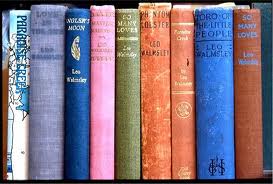Fiction
Read it!
This would be the first book I have read from Vandana Singh-Lal. Contrary to popular form, I didn't pick this up on recommendation or because of the cover, although I do like the cover. I went to Writer's Cafe (Kalyan Nagar, Bangalore) with my kids just to explore. They also sell books, so I thought I will support small business. Their books, though used, are definitely not cheap. But all for a good cause, right?
Anyhow, the novel opens with twins going to Paris with their father. There are the usual twin tropes, though very mild at this stage in the book. As we move into the next chapter, we find the twins in isolation in their house, having literally almost starved themselves to death. They are discovered by a little boy who has inadvertently set some trash on fire with Diwali fireworks and goes to the door to warn them. What follows is a mix of police, press, and backstory into how our protagonistas reached this point, though only one of them is the narrator.
The book is a very beautifully spun narrative. I did not find myself bored, though the plot lagged at places. There was just enough forshadowing used that it wasn't ridiculous nor absent and the reader discovers (I felt) just what the author intended at exactly the moment she intended. This is not an easy task and it's done very well. The authoress touches on many social issues and comparisons in society. The twins have lost their family and while dramatically different from each other, are very closely connected and only have each other for most of the novel. The author also goes into how sensationalist the media can be and how people change once something goes public. In this case, it's the apartment society's attitude towards the twins. It's disgusting sentiment, but anyone reading the book who is Indian or has any idea about India can relate. I won't give away the twist at the end of the book, but it's brilliant. I definitely did not see it coming.
The book does overdo the twin angle in the end. I also was left at the end of the book wondering what exactly the whole point of the starvation was. The author does briefly explain it, but I wasn't satisfied. Perhaps that was the point, there was no point to the starvation - it was just a thought exercise that went way out of control. As I mentioned, some of the book is a little slow, but if you slow down yourself to contemplate the issue the author is commenting on, it makes sense to think through a little slower. I would have also liked to have seen a little more character development of both the twins. The reporter is obsessed with at least one of them, but I can't figure out why. A big ado is made about how they are alike and different, but aside from vague references to who is smarter and who is born first, not much is done here. Again, perhaps intentional.
Overall, an excellent read and one that kept me engaged.
Read it!
~Becky~
